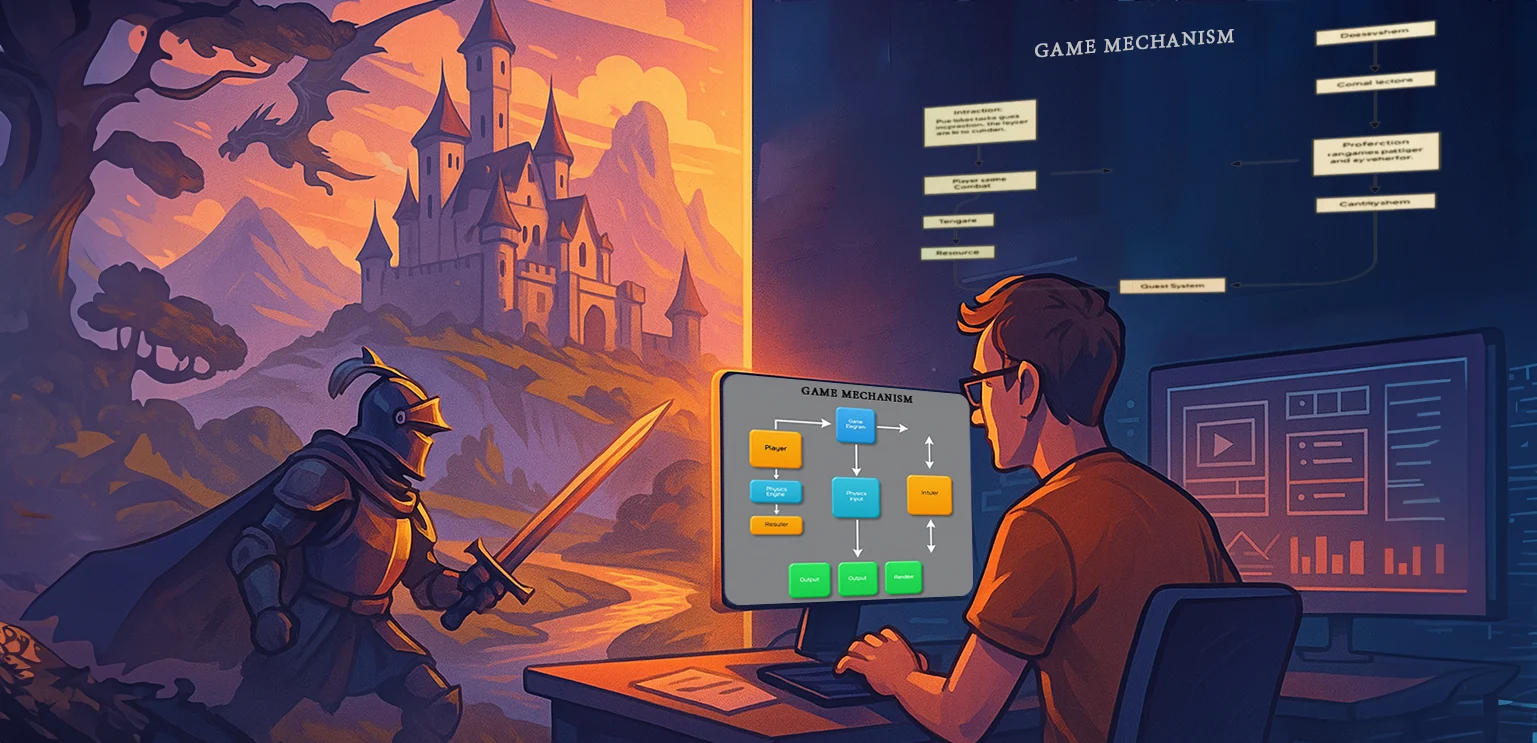Theme or Mechanics: What Comes First in Game Design?
Game design is an intricate process that blends creativity with technical precision. One of the longest-running debates in the industry is whether a game’s theme or its mechanics should come first. Some designers begin with a strong narrative or aesthetic vision, allowing the theme to guide every design decision. Others prioritize mechanics, ensuring the gameplay is fun and engaging before adding any narrative or stylistic elements. So, which approach is better? Let’s explore both perspectives and see how different games have tackled this question.

The Case for Theme First
A theme is the story, setting, and overall feel of a game. It creates an emotional foundation that can influence everything from the gameplay to the art style. Here’s why some designers choose to start with a theme:
-
Stronger Emotional Connection – A well-developed theme can draw players in, making them feel more connected to the world and characters.
-
Cohesive Aesthetic – Visuals, music, and storytelling blend together seamlessly when they are built around a central theme.
-
Marketing Appeal – A compelling theme can generate excitement and curiosity before the game is even released.
-
Guided Mechanics Design – When a theme is clear, it can naturally suggest mechanics that enhance the experience.
For example, horror games often begin with a strong theme—dark, eerie, and suspenseful. Once the theme is established, mechanics such as limited resources, slow movement, and unpredictable AI behaviors are added to intensify fear and tension. Games like Silent Hill and Resident Evil are great examples of theme-driven design.
The Case for Mechanics First
On the flip side, many game designers believe that gameplay should always come first. After all, if the game isn’t fun to play, no amount of story or visual polish can save it. Here’s why mechanics-first design works:
-
Ensures Fun Gameplay – A game with solid mechanics remains enjoyable even without a deep theme.
-
Encourages Innovation – New mechanics can lead to fresh experiences that don’t rely on existing themes or tropes.
-
Easier Iteration – Mechanics can be tested and refined early, reducing the risk of having to scrap major parts of the game later.
-
Greater Accessibility – Many players value gameplay over story, making a mechanics-first approach more appealing to a broad audience.
Classic arcade games like Tetris, Pac-Man, and Pong started purely as mechanical experiments. Even modern indie hits like Celeste and Super Meat Boy began with refined movement mechanics, with themes and stories layered in later to enhance the experience.
The Best Approach? A Balance of Both
While some games thrive with a theme-first or mechanics-first approach, many of the best titles find a balance between the two. Instead of choosing one over the other, successful developers allow theme and mechanics to evolve together.
Games like The Legend of Zelda, Dark Souls, and Hollow Knight blend deep themes with strong mechanics, creating experiences that are both engaging and immersive. In these cases, the theme influences mechanics (such as Dark Souls’ punishing combat reflecting its bleak world), while mechanics reinforce the theme (like Hollow Knight’s movement complementing its melancholic atmosphere).
Another effective strategy is to prototype mechanics first while keeping a loose thematic idea in mind. This allows designers to explore fun gameplay without being constrained by a rigid theme while ensuring that the final product remains cohesive and immersive.
Conclusion
Whether theme or mechanics come first, the ultimate goal of game design is to create an engaging and memorable experience. Each approach has its strengths, and the best choice depends on the type of game being developed, the target audience, and the creative vision behind the project.
At Gamix Labs, we specialize in both game art and development, helping studios bring their creative visions to life. Whether you start with an idea for a world or a unique gameplay mechanic, our team can turn it into a polished, high-quality game.
Looking to develop your next game? Contact Gamix Labs today and let’s build something amazing together!
What does “theme-first” vs “mechanics-first” mean in game design?
Theme-first means you start with the story, world, or mood and build gameplay to fit it. Mechanics-first means you invent a fun player action or system, then wrap a theme around it.
Which approach makes a better game: theme-first or mechanics-first?
There’s no one right answer — both can work. Games that aim for deep emotion often start with theme, while games built for tight, replayable fun often begin with mechanics. The best games usually blend both.
When should I choose a mechanics-first approach?
Pick mechanics-first when your core idea is a new or tight gameplay loop (like a unique control or physics trick). It’s great for quick prototyping and early player testing.
When is theme-first the smarter choice?
Start with theme when story, atmosphere, or a strong brand is central—think horror, narrative adventures, or licensed IPs. Theme helps guide art, sound, and player emotion.
How do I combine theme and mechanics without losing focus?
Prototype the mechanics quickly, keep a light theme idea, then iterate: test the loop, add theme elements that reinforce the gameplay, and keep playtesting so mechanics and theme grow together.